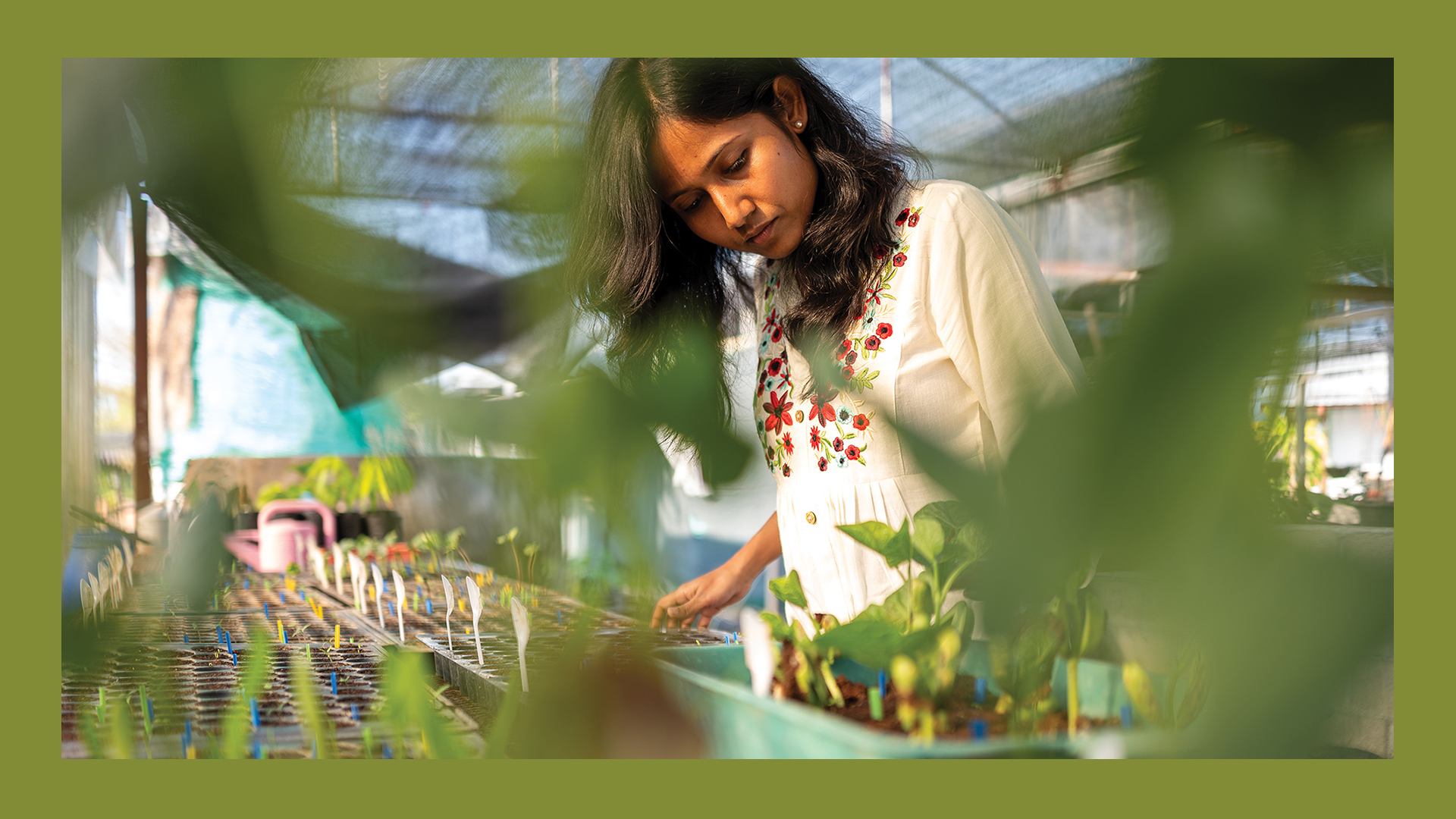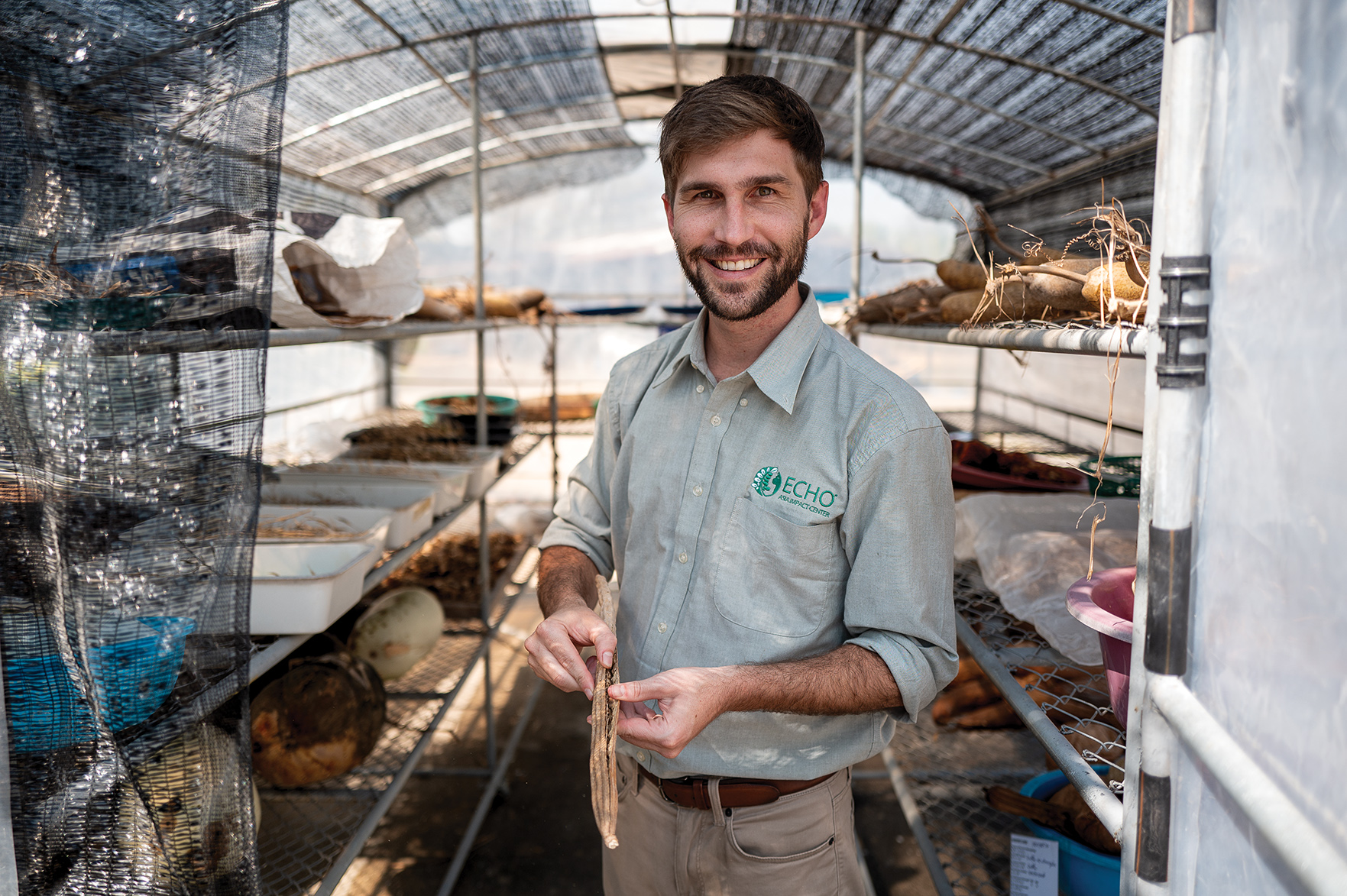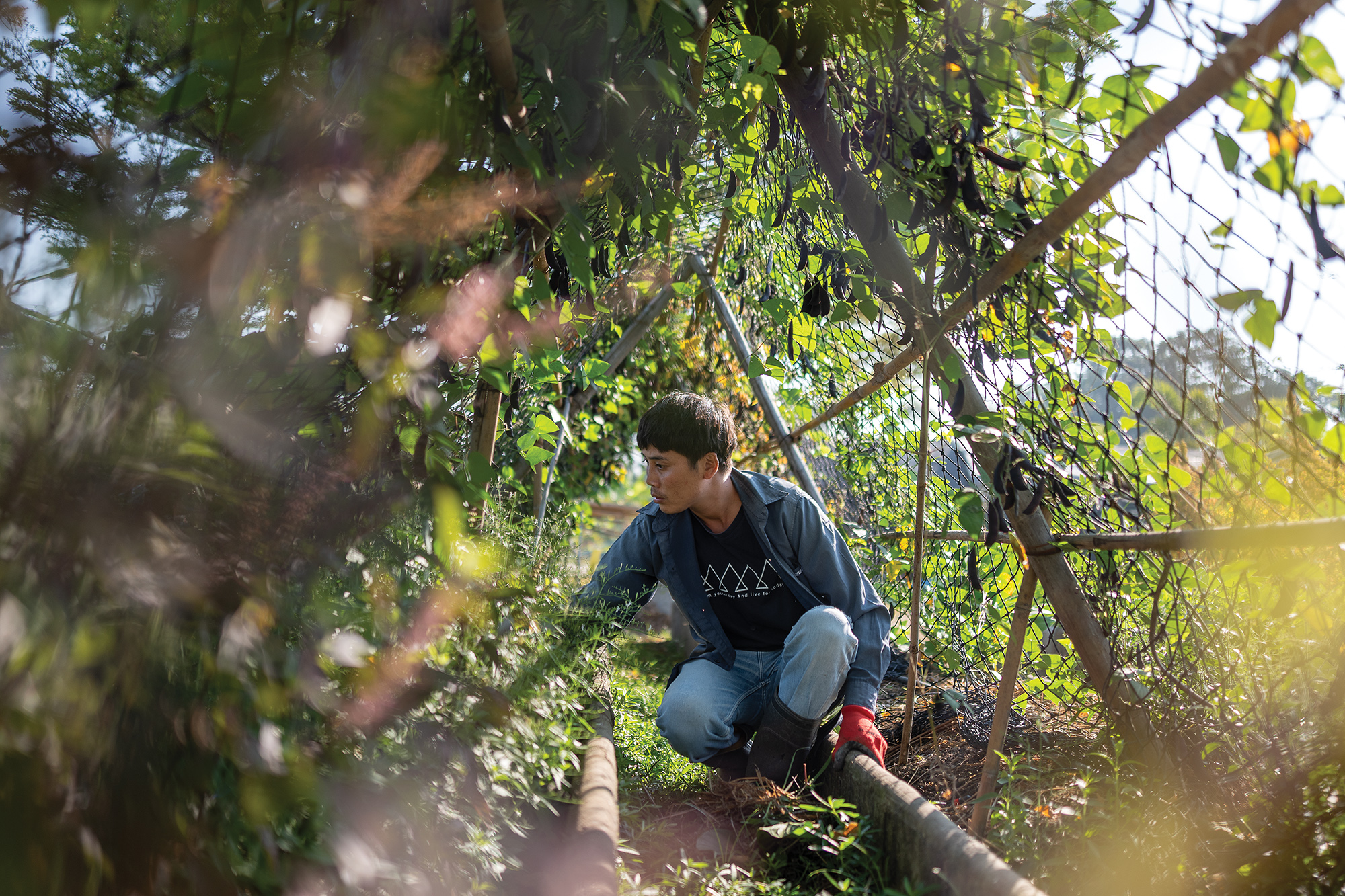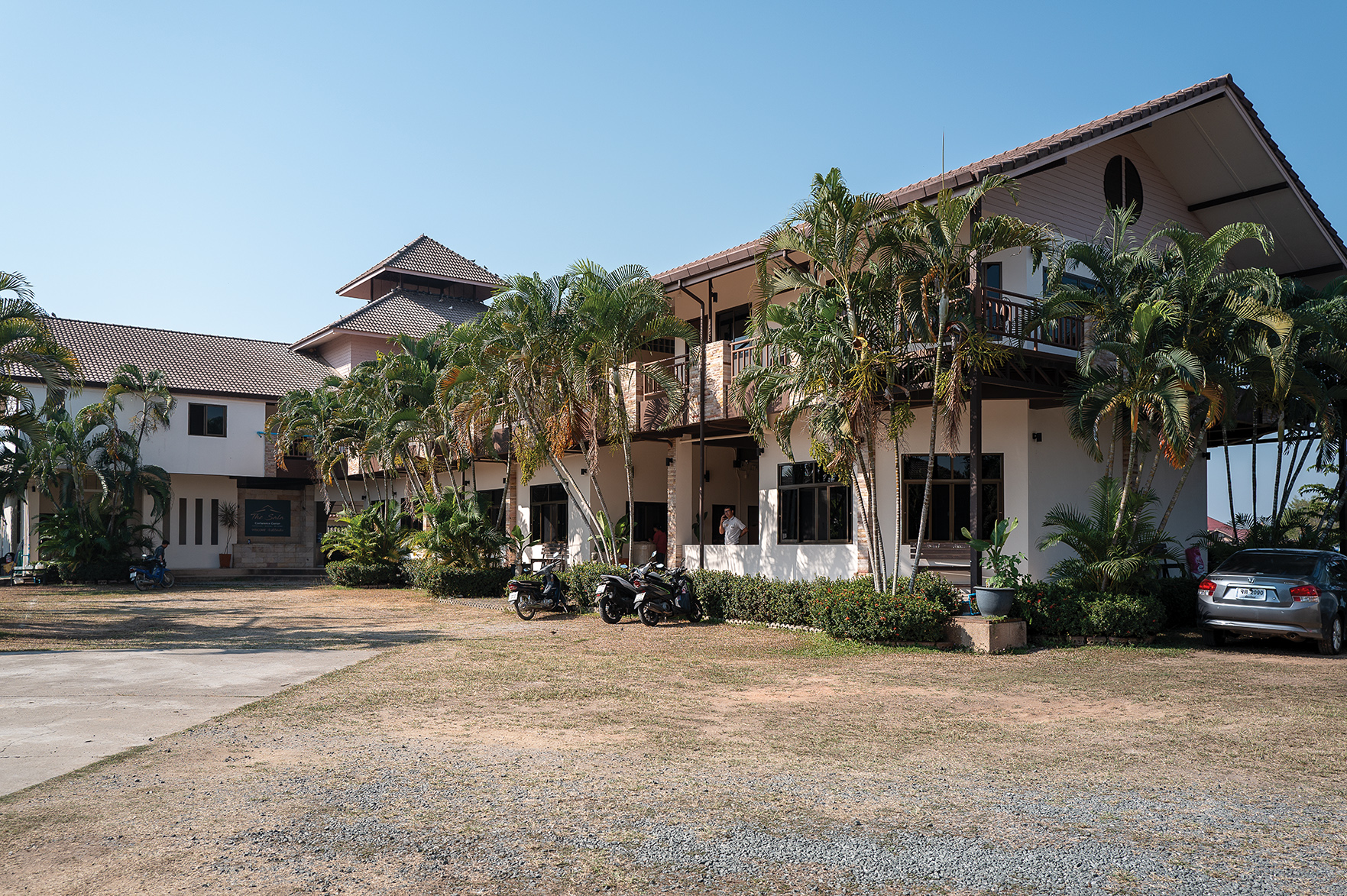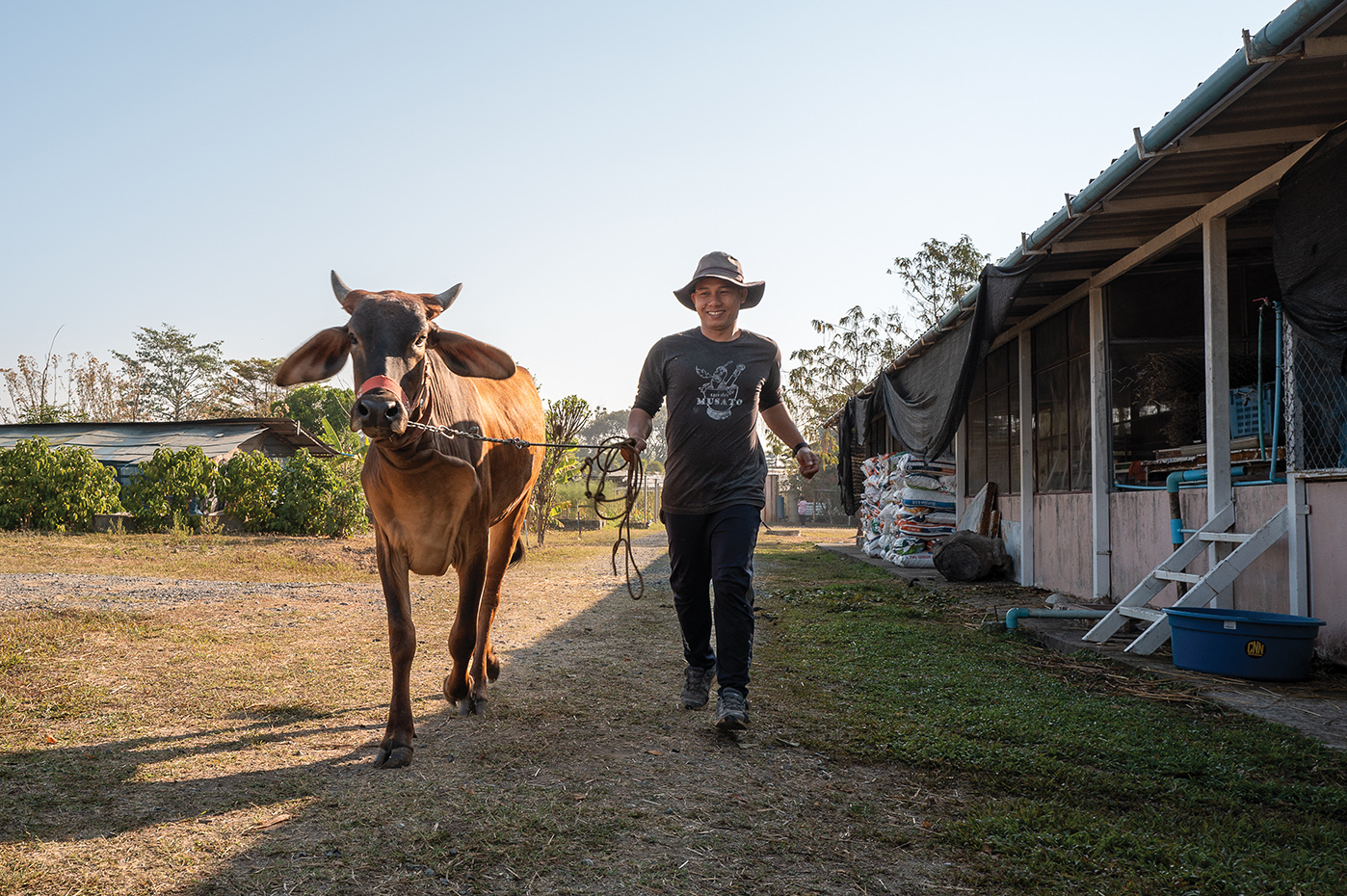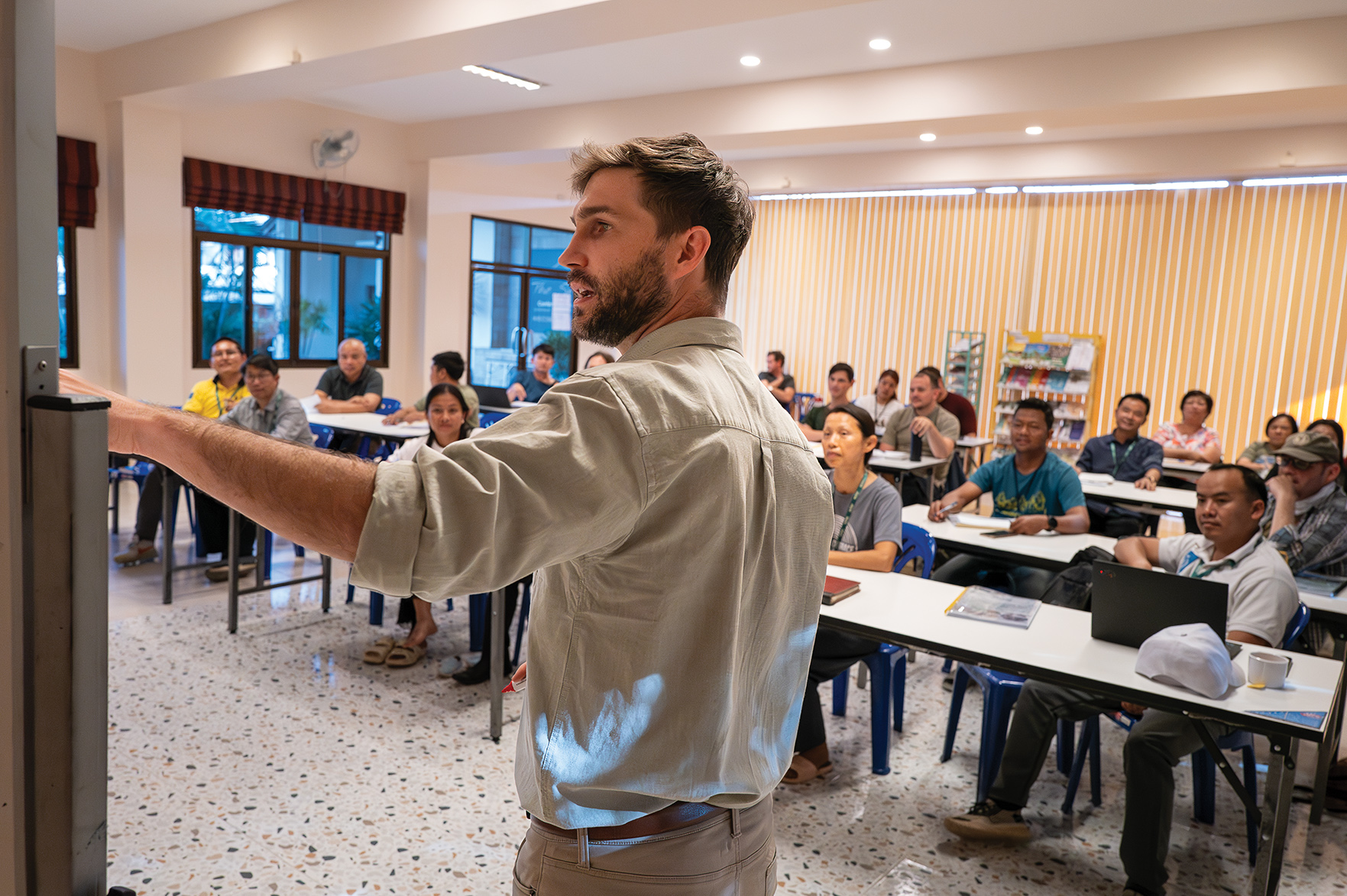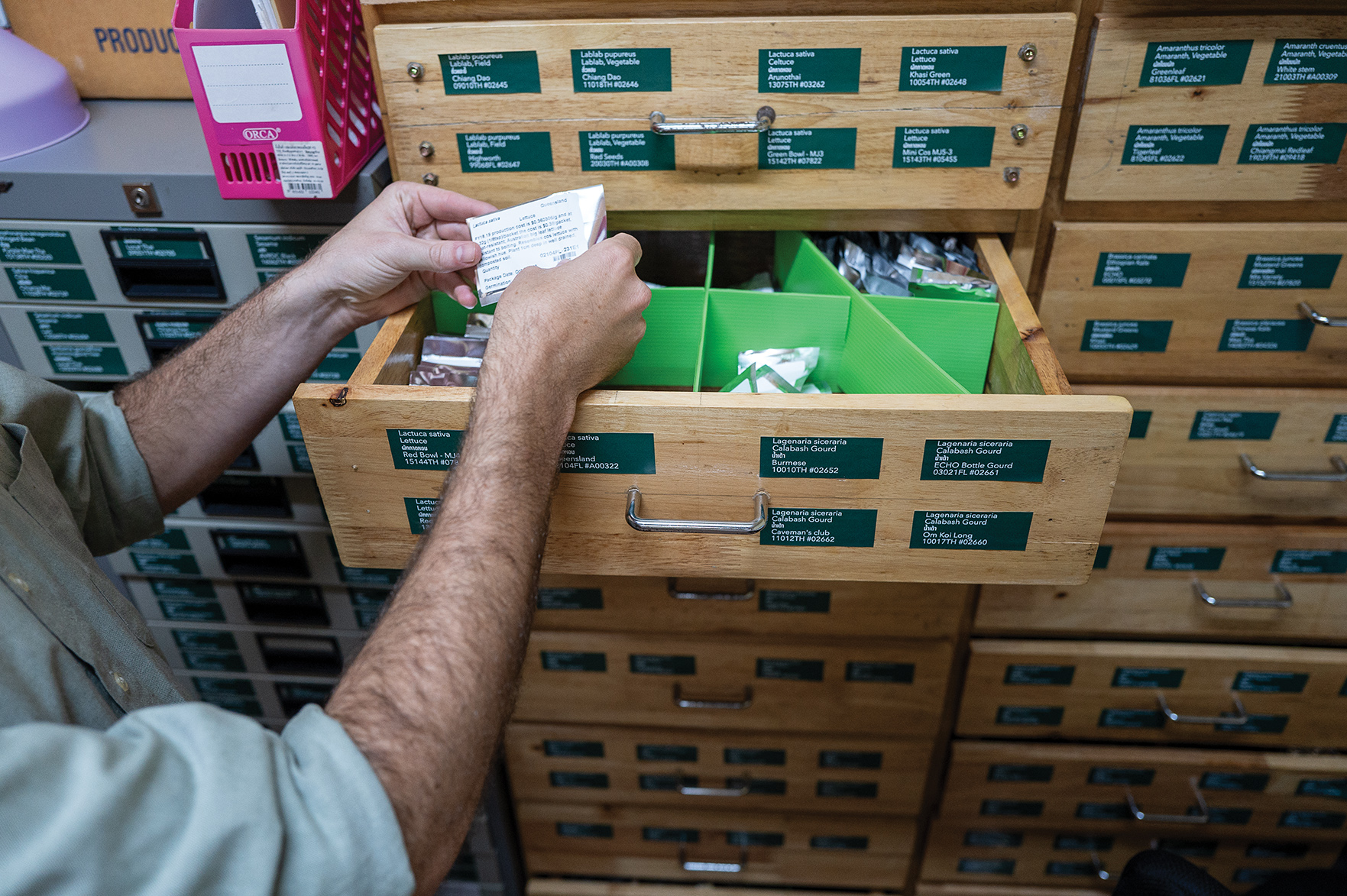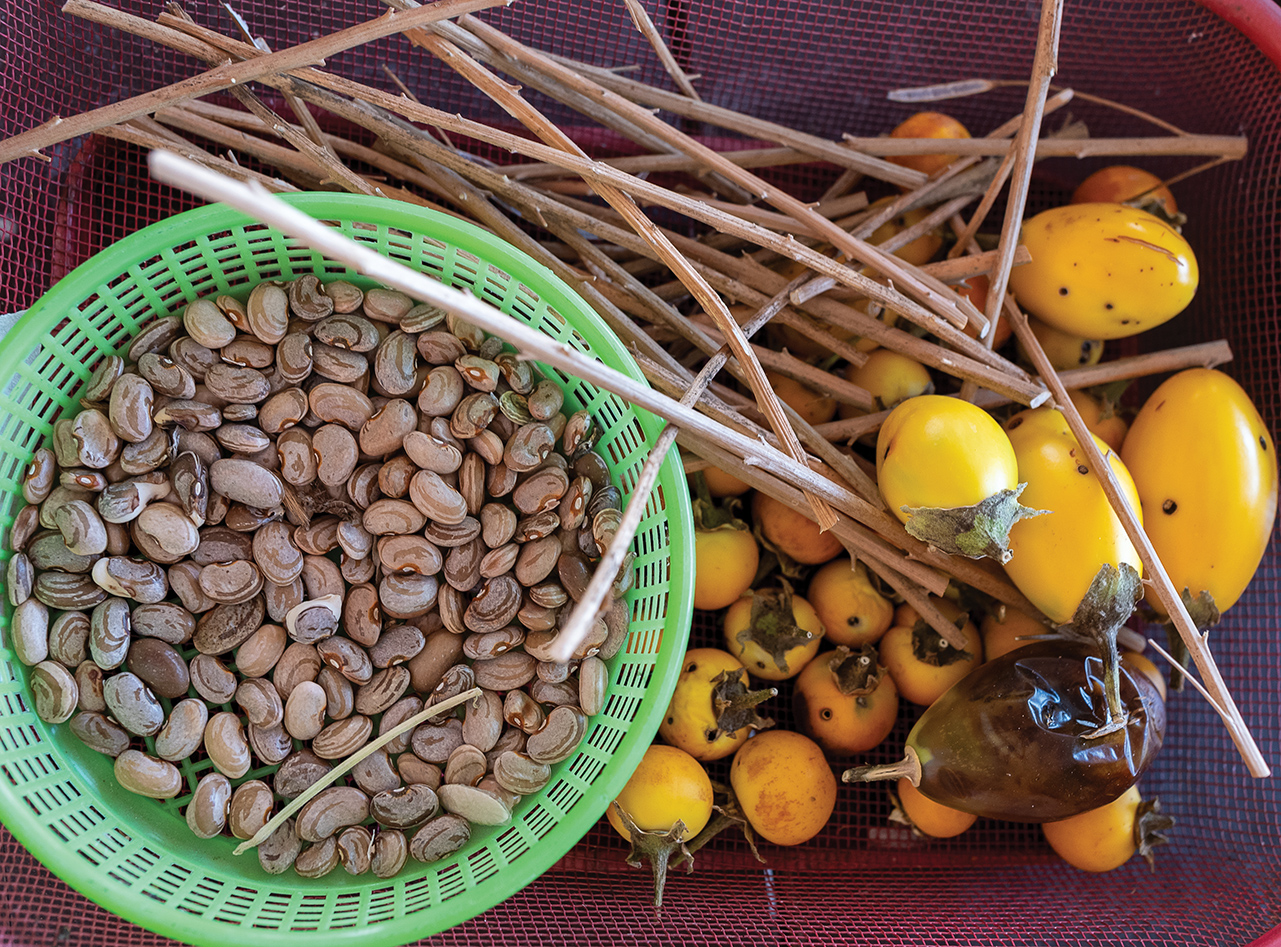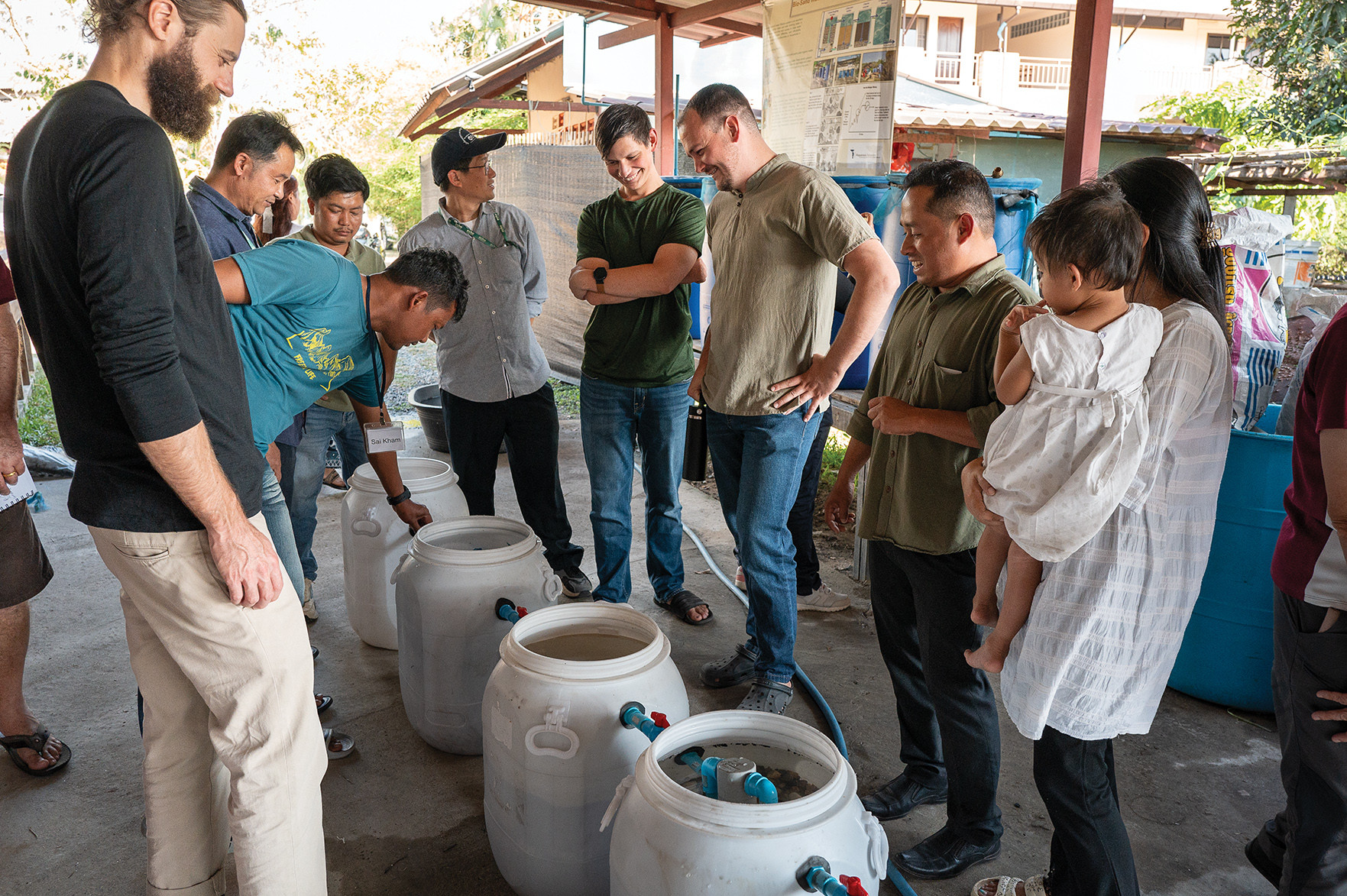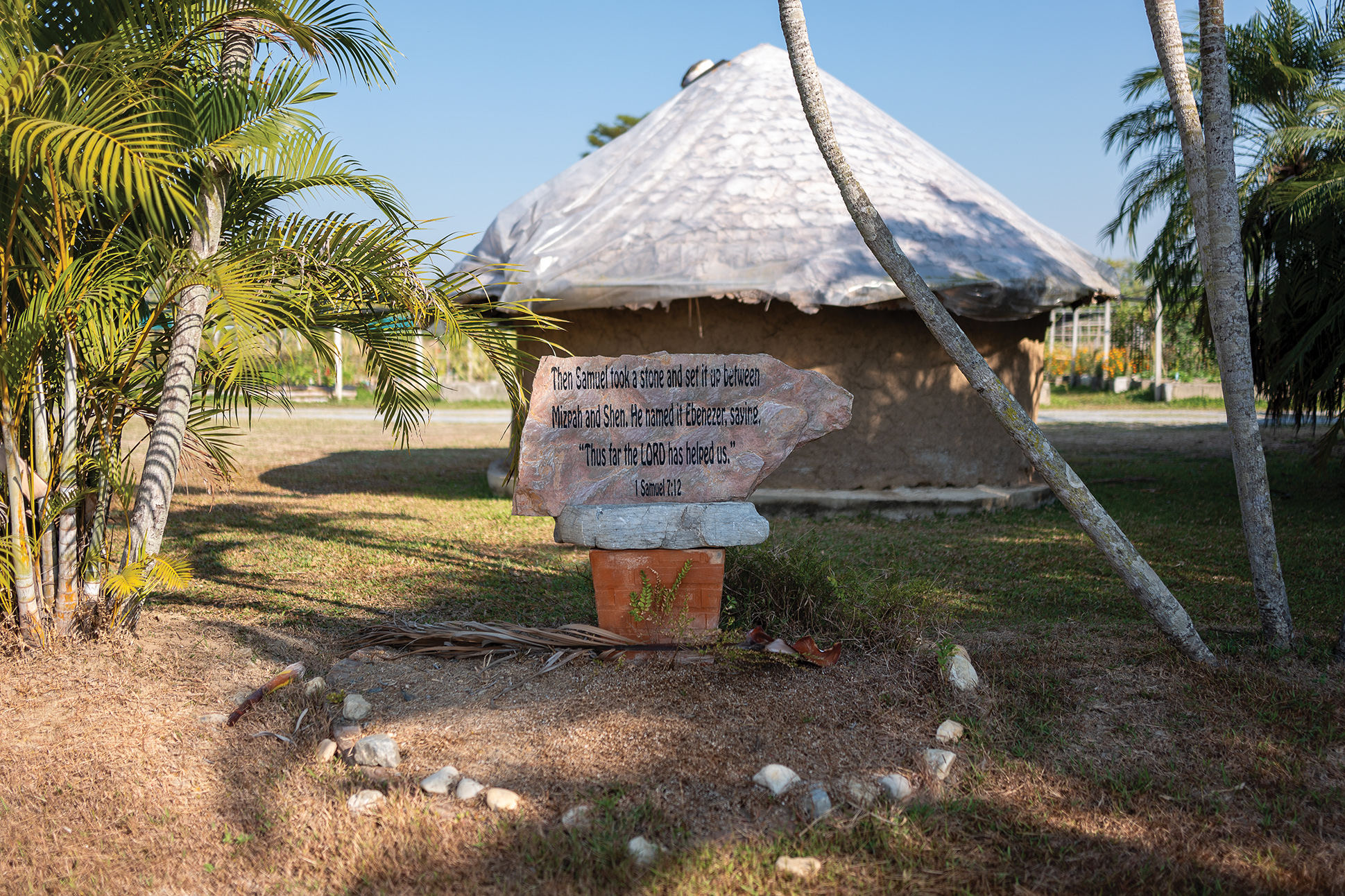In the fight against world hunger, Patrick Trail sees weapons everywhere. A bike pump, for instance.
Farmers in the jungles of Vietnam or the floodplains of Cambodia may not have money to buy a vacuum-sealing machine, which they could use to preserve seeds and store them for future planting. So Trail, who leads the ECHO Asia Impact Center in Thailand, found ways to improvise. He took apart a bicycle pump and rebuilt it to suck air rather than blow it. Then, with a glass jar and a piece of tape, he used the pump to remove oxygen and moisture from a handful of seeds.
And just like that: dirt-cheap seed saving.
In fact, Trail and his coworkers have found that across locations and with different seed varieties, the bike pump works better than most vacuum sealers, which cost hundreds of times as much. Contrary to popular belief, “cheap can be good too,” he said.
A large majority of people in Southeast Asia live in rural areas, where agriculture is the dominant livelihood. But farming is getting more difficult. Rising energy prices and limited access to credit are hitting farmers at the same time that climate change is making temperatures and rainfall more volatile. Farming smarter, in Asia and elsewhere, is key.
On a seven-acre farm outside of the city of Chiang Mai, staff are experimenting with ways to turn waste into resources. Some of the experiments are stunning in their simplicity: A ballooning black plastic tarp traps gases released by decomposing pig manure, and a pipe transports the gas to heat pig feed. Black soldier flies eat food scraps and leave behind their grub-like larvae, which is harvested as chicken food.
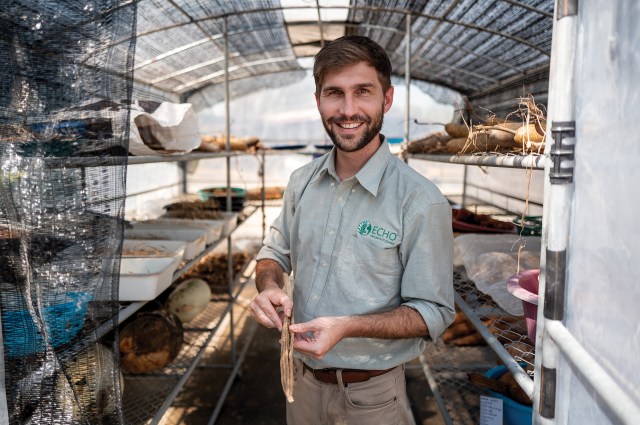 Photo by Tim Barker
Photo by Tim BarkerOther projects are more technical: Workers tinker in the kitchen to find tasty ways to cook plants like the leafy chaya and Spanish needle, which are edible and nutritious but not generally viewed as food in Asia. They dry seeds in a cabinet using four light bulbs and a cheap computer fan. They heat wood chips and plant scraps in a metal barrel to make biochar, a charcoal used to filter water.
“You got all these resources available, but people might just not know, with a few simple techniques, how to take advantage of them,” Trail said. “We’re all about turning waste into value.”
The farm in Thailand is one of three such sites around the world operated by ECHO, a Florida-based organization that shares its knowledge, research, and seeds with missionaries, development workers, and local pastors. (The idea of using a bicycle pump for a vacuum, for example, didn’t originate with ECHO, but the organization has tested and refined it for use in specific contexts.)
ECHO and its network in Asia exist to improve small-scale farming in impoverished rural areas. In addition to research and training, ECHO maintains a seed bank for underutilized and hard-to-find seeds that thrive in Asia, hoping to ensure farmers have access to them for generations.
For 40 years, the Christian organization has been providing resources for frontline agricultural workers. Especially as the climate warms and governments close their doors to missionaries, ECHO sees its role as increasingly important for ministry across the globe. Christians with expertise in sustainable farming are often welcomed where traditional missionaries are not.
“There’s a growing demand for holistic approaches,” Trail said. “We’ve seen pastors come to us saying, ‘We are planting a church to share the gospel, but of course we’re going to help our neighbors with food insecurity [because] they’re hungry and their children are malnourished. Jesus met people’s physical needs, so why wouldn’t we?’”
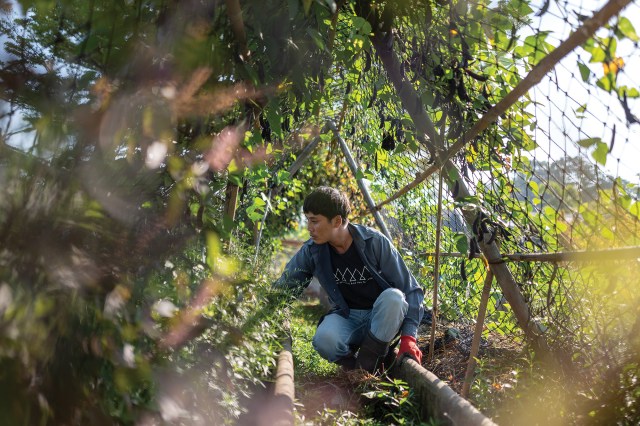 Photo by Tim Barker
Photo by Tim BarkerECHO’s original vision was small. In the 1970s, American businessman Richard Dugger went on a mission trip to Haiti and returned home to Indianapolis overwhelmed by the poverty and need he saw. He founded the Educational Concerns for Haiti Organization (ECHO) to find long-term solutions to food scarcity in Haiti.
In 1981, Martin Price became ECHO’s first executive director and broadened the organization’s focus from Haiti to the entire world. He emphasized agricultural research, training, and providing seeds for groups already in the field: agricultural missionaries, Peace Corps officers, and Christian nonprofit groups like World Vision. The H in ECHO was switched to stand for “hunger.”
During Martin’s tenure, missionaries sent him questions by mail, and he responded with hand-typed suggestions, according to Abram Bicksler, the group’s president and CEO today. Martin kept in touch with a growing network through long-distance calls and trips to visit projects.
“Back in the day before Google, we served as the Google for sustainable agriculture for the developing world,” Bicksler said. “Even to this day we get a lot of requests; it’s just moved online.”
ECHO purchased a 7.5-acre demonstration farm in Fort Myers, Florida, in 1991, where researchers experiment with best practices. ECHO began its first seed bank there. Today the farm is 57 acres with training facilities, administrative buildings, and a bookstore. About 10,000 visitors tour the farm each year.
The advent of the internet allowed ECHO to grow its global agricultural network. In the mid-1990s, ECHO began its first international conference, now held annually. Its ranks swelled with not only missionaries, but also indigenous pastors, aid and development workers, and environmental academics. Roughly a quarter of ECHO’s network today are non-Christian organizations.
“We invite anyone to come to our conference, but really we see this as a gospel issue,” Bicksler said. “Our example is Jesus, who ministered through holistic, spiritual, and social healing.”
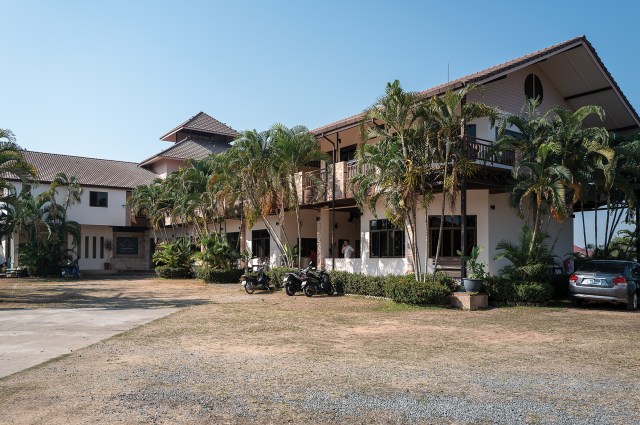 Photo by Tim Barker
Photo by Tim Barker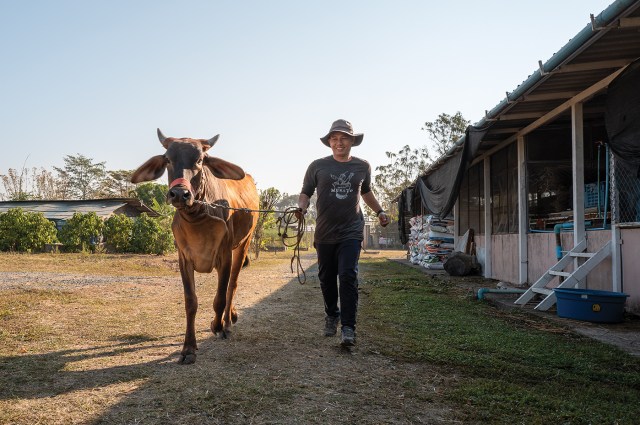 Photo by Tim Barker
Photo by Tim Barker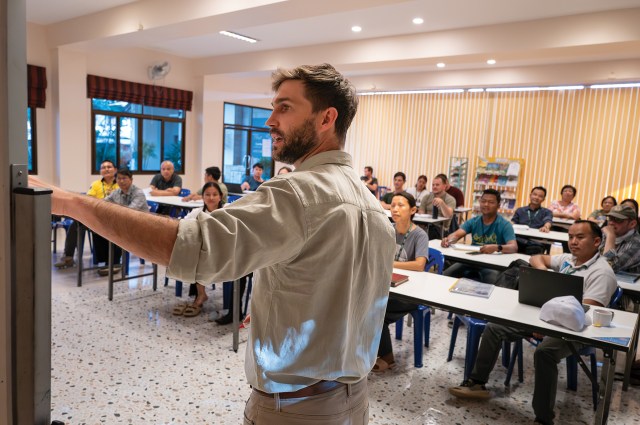 Photo by Tim Barker
Photo by Tim Barker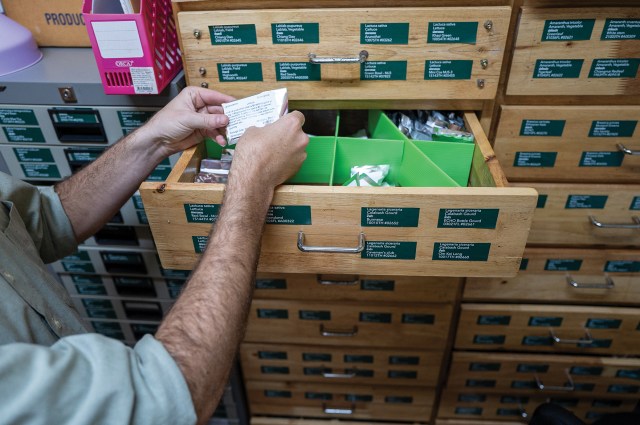 Photo by Tim Barker
Photo by Tim Barker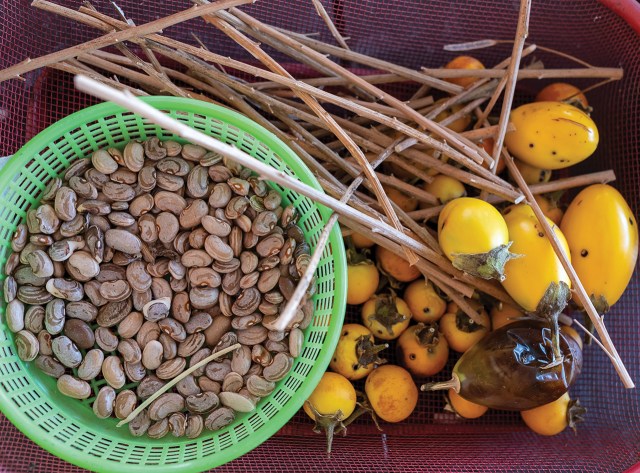 Photo by Tim Barker
Photo by Tim BarkerThrough an online community, ECHO members find resources and exchange knowledge. In one recent thread, someone from Kenya asked for suggestions on dealing with drought. Another member recommended water harvesting trenches. A few weeks later the Kenyan farmer posted a photo of a water pool she’d captured using his technique.
ECHO opened its first global farm in Chiang Mai in 2009. In the following years, it opened farms in Tanzania and Burkina Faso to contextualize the organization’s practices and ideas for Africa. Like the farm in Florida, the overseas centers are repositories of information and laboratories for best practices.
Along the way, ECHO’s work in the development community has led some people to Jesus. When Manali Dutta from Calcutta, India, arrived at the ECHO conference last October, she immediately felt drawn to the people at ECHO. “I felt like I’m one of them, like a part of the family, even though I just met them,” she said.
She grew up in a Hindu home but never felt connected to her family’s faith. Instead, Dutta always sensed someone was protecting her, like hands waiting to catch her if she fell. When she shared this with a conference attendee, he told her: “Do you know what, you are actually talking about the Bible.”
As they discussed the gospel, Dutta felt like she finally found what she had been looking for.
Dutta traveled to the Chiang Mai farm for a three-month internship, where she cared for the farm and the seeds, putting to use her master’s degree in zoology and at the same time learning more about her new faith. “Wow, it feels so joyful, it gives so much inner peace,” Dutta said. “I feel like I’m not alone, I know God is always there for me.”
Under the sweltering mid-February sun, Trail walks me through row upon row of plants growing in raised beds—stalks of quinoa and sesame, green jack bean and tobacco (for natural pest control), brilliant red amaranth and drooping calabash gourds. Some plants have to be protected by strips of shade cloth. Others are watered by plastic water jugs that workers peppered with holes and buried in the soil, filling them with water to drip-feed certain beds.
Trail points to green tomatoes hanging heavy on the vine, noting that, while the fruit would be ready to harvest in two weeks, he plans to keep them on the vine another six. Tomatoes left to rot on the vine will leave mature seeds—perfect for collecting and saving in the seed bank.
Seed saving works like this: ECHO staff cut up the overripe tomatoes, scooping out the seeds and soaking them overnight. The seeds ferment, breaking down the mucilage, a gelatin-like protective coating. Workers rub away that outer pulp with a screen, then dry the seeds in the sun or an open-air rack. Dry seeds are vacuum sealed and stored in a chilled, insulated seed bank.
Every seed requires different techniques: some plants, like lettuce, produce thousands of seeds. Others, like jack bean, only have about eight per pod.
The seed bank is the centerpiece of the Chiang Mai farm. It houses around 200 varieties of seeds, most of which produce food for humans or livestock or can be used as cover crops or natural pesticides. ECHO collects and exchanges seeds with local farmers, as well as with partners across ECHO’s networks, said Rattakarn Arttawutikun, the farm’s agricultural operations manager.
ECHO also trains its local partners to save and store seeds, because only local communities can ultimately ensure the stability of future crops. (And ultimately, sustainable farming practices are only useful if communities choose to adopt them.) Country-specific seed banks are becoming more important, Trail says, as Southeast Asian countries tighten restrictions on bringing seeds across borders.
“If [farmers] know how to save, how to clean well, how to dry well, they will be able to save the seed longer,” Arttawutikun said. The seeds in ECHO’s seed bank last between three and ten years. “With our technique, it’s available a whole life,” she said. So “the next generation, they don’t have to worry about that.”
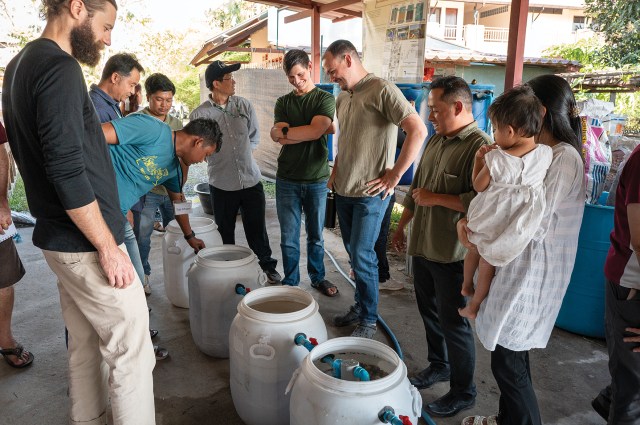 Photo by Tim Barker
Photo by Tim Barker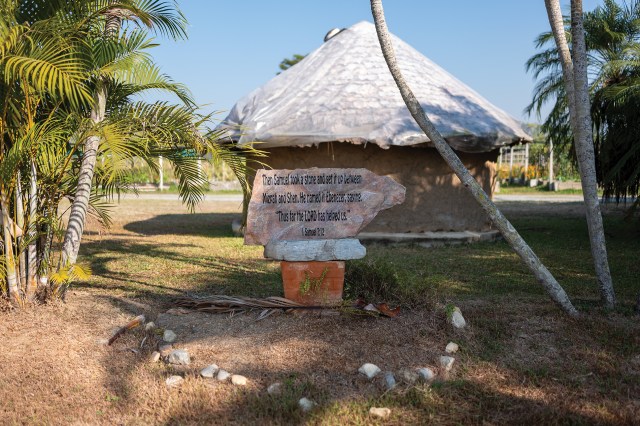 Photo by Tim Barker
Photo by Tim Barker Photo by Tim Barker
Photo by Tim BarkerThe biggest barrier to creating seed banks in impoverished areas is cost. In humid, hot climates, it’s difficult to keep seeds cool and dry. ECHO Asia’s seed bank occupies an insulated, climate-controlled room, chilled by an air conditioner to a steady 50 degrees Fahrenheit. Inside, shelves are lined with plastic bins noting the seed names and filled with vacuum-sealed bags of seeds. Should the electricity go out, the farm has a backup generator. And should a fire or other disaster destroy the seed bank, there are more seeds in a deep freezer. Every year, ECHO staff does germination tests to make sure seeds remain viable.
ECHO’s setup, however, is too expensive for farmers in places like rural Laos. So ECHO experiments with lower-cost storage designs, such as structures built from earth-filled bags and insulated with sawdust or rice hulls to keep heat and humidity out.
To help disseminate this kind of knowledge, ECHO partners with local pastors who are farmers themselves, who have congregations made up of farmers, or who are trying to reach out to farmers. The thinking is that communities benefit by learning about nutritious new crops or natural ways to control pests, and pastors can build trust by helping families improve their livelihood.
By using the Chiang Mai farm as a resource center, “We have this opportunity to take on the risk,” Trail said. “Farmers just don’t have much margin. It’s risky to try anything new. So one of the benefits is that [we can] just try and fail and try and fail until we find things that work.”
On the day I visited ECHO farm in early 2024, 25 people from eight countries—including Thailand, Myanmar, India, and the United States—were finishing up a weeklong course on tropical agriculture and development. Most of the participants had little to no farming background.
One worked at a children’s home in Myanmar and had come to learn how to build a garden to feed the children. Another was a missionary who grew up on a farm in Pennsylvania and planned to do community development work in northern Laos. “We’re getting really excited about [taking] a holistic approach,” he said, requesting his name not be used because of the Lao government’s restrictions on missionaries. “I believe the community has resources and we want to help people value that and use that.”
On the last afternoon of the course, students sat in a classroom learning about four-barrel water filtration systems. The training to build these systems is ECHO Asia’s most popular class.
After Myanmar’s coup in 2021, many of ECHO’s partners working with displaced people along the Thailand-Myanmar border urgently needed low-cost water filtration. Trail had heard about a four-barrel system that only required plastic trash cans, pipes, rocks, charcoal, and sand. The team did some research and tried to build one.
Once they found a design that worked, they shared it. They held workshops on how to build the system. Now dozens of these water filtration systems—which fit well in a school or a church—are in use.
Participants Albert “Jelly” Molsom and her husband, Abel Debbarma, said they hope to take what they learn in the course to a Christian retreat center they help run in southeastern India. They want to build a demonstration farm where they can grow food to feed guests, and they want to train locals to set up backyard gardens and raise small livestock. Molsom’s parents are farmers, but “everything is new for us,” she said, gesturing to the water filtration system.
A Singaporean missionary to Chiang Mai named Philip, who requested his last name not be used, came to the course with three colleagues. His specialty is biblical counseling, but he also wanted to incorporate some community development into his work.
The Thai church Philip partners with told him it had a training center 45 minutes outside the city with plenty of land to build a farm. The only problem: Philip is from urban Singapore, with very little experience in agriculture. “We needed something more systematic, and this course fit,” he said. “It’s better than learning from YouTube or whatever source. Now we have a proper way to learn.”
Philip said the training taught him not just what to do, but why. “If we have a good harvest, we share it with the community,” he said. “If we have good seeds, we can share it with the community. It helps to build trust and build relationships and that presents the opportunity to share the gospel.”
Peter Jan de Vries, an environmental consultant for the Christian nonprofit SIL International, came to ECHO’s farm to network and learn more about the challenges facing farmers in the region. After the training, he traveled to Indonesia to teach Christians how the Bible relates to farming and to demonstrate building the water filtration system.
What ECHO is doing, de Vries said, “is the practical implementation of the mustard seed—that you have to start with the small farmers. You’re not doing it to immediately change the world, but you start changing [it] through people who have no one else to take care of them.”
He added: “And it really supports the growth of God’s kingdom because, if you help people where they are, where their challenges are, then they are also very open. [They wonder] Hey, why are you doing this instead of just selling a product? You’re trying to help us. That is the testimony in itself.”
Angela Lu Fulton is CT’s Southeast Asia editor. She reported this story from Chiang Mai, Thailand.

